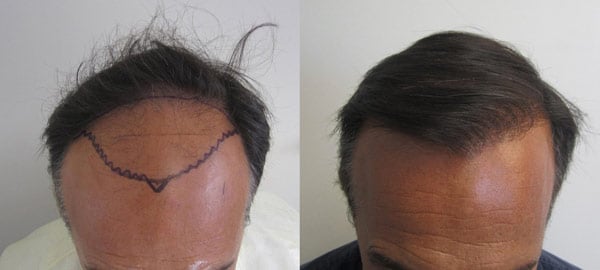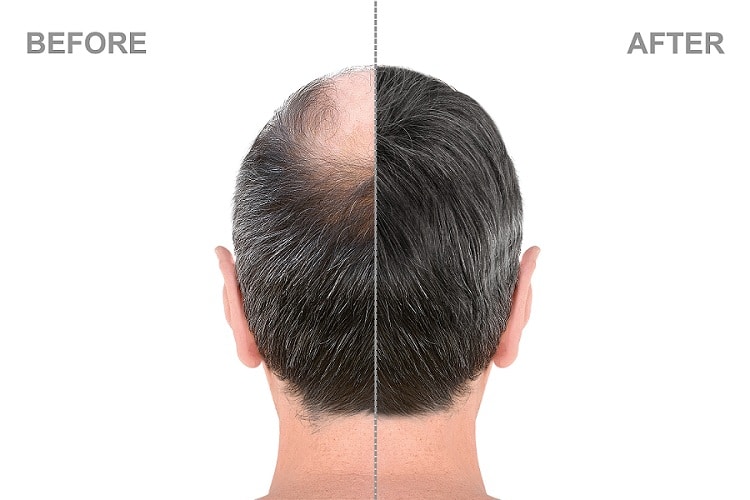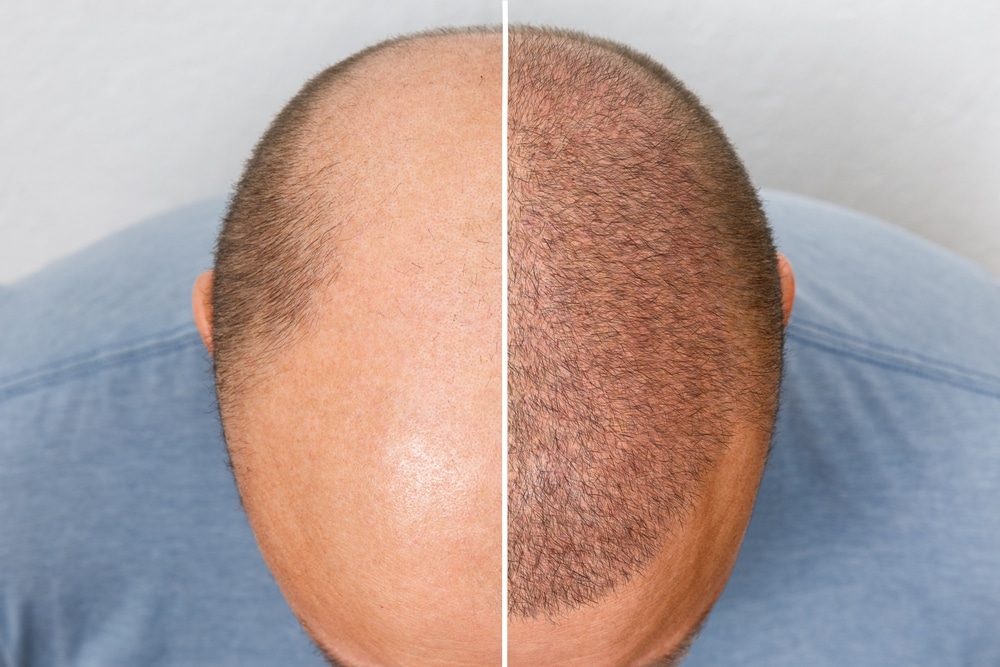Most hair restoration methods are downright disappointing.
Who hasn’t tried the miracle shampoos, the magical oils, and the next-big-thing pills promising lush hair, only to find them utterly useless?
You’d think by now we’d have figured out a surefire way to deal with hair loss, right? But here comes hair cloning—a scientific marvel that might just be the answer to our balding woes. Or is it?
Indeed, hair cloning could be the ultimate solution for those thinning locks, but it’s not all sunshine and roses. There’s plenty of controversy, high stakes, and eyebrow-raising facts that come along with it.
So, before you jump on the hair cloning bandwagon, let’s dig into why this might be the best—or worst—thing for your hairline.
What is Hair Cloning?
Hair cloning is the cutting-edge technique that promises to be the ultimate fix for those battling hair loss. Forget about spending endless hours with your hair extension technician—hair cloning aims to restore your natural hair by creating new hair follicles in a lab.
So, how does this magic work? Scientists take a few of your healthy hair follicles, replicate the cells responsible for hair growth, and then implant these newly grown cells back into your scalp. It’s like farming, but for hair follicles. The goal is to stimulate new growth in areas affected by thinning or baldness, offering a potential breakthrough in hair restoration.
Now, don’t get too excited just yet. While the concept sounds like the holy grail of hair restoration, it’s still in the experimental phase. Researchers are making significant strides, but widespread availability is a few years away. Current studies and clinical trials are paving the way for this technology to become a mainstream option. So, while hair cloning might be the future, you might need a little patience before booking that procedure.
The Benefits of Hair Cloning
Permanent Solution to Hair Loss
Let’s face it—most hair restoration methods are about as effective as a chocolate teapot. Hair cloning, however, promises something revolutionary: a permanent solution to hair loss. Unlike traditional hair transplants, which merely shuffle existing follicles around like deck chairs on the Titanic, hair transplant cloning involves creating new hair follicles from scratch.
This isn’t just a temporary fix; it’s a long-term strategy that could finally put your hair loss woes to rest. Studies suggest that cloned hair follicles can continue to grow indefinitely, providing a lasting solution for those tired of fleeting results and endless upkeep.
Increased Hair Density
For those struggling with thinning hair, hair cloning offers a glimmer of hope. The process of cloning hair follicles means not just stopping hair loss, but potentially reversing it by increasing hair density. Imagine waking up one day with a mane as lush as a lion’s—okay, maybe not that dramatic, but you get the point.
By generating new hair follicles, this method can significantly boost the volume of your hair, filling in those sparse patches that have been causing you grief. Research has shown that individuals undergoing hair cloning treatments can experience a noticeable improvement in hair density, making this a promising option for those looking to reclaim their youthful hairline.
Less Invasive Procedure
Traditional hair transplants often involve painful procedures that can leave you looking like a science experiment gone wrong. Hair cloning, on the other hand, is a minimally invasive alternative. Instead of harvesting large sections of your scalp, this technique focuses on cultivating hair follicles in a lab and then implanting them into your scalp. The result is less pain, quicker recovery times, and fewer visible scars. This method not only spares you the discomfort but also ensures that your hair restoration journey is as smooth as possible.
The Drawbacks and Concerns
 Unpredictable Results
Unpredictable Results
Hair cloning in 2024 is still more science experiment than sure thing. The success rates can swing wildly, leaving some with a head full of hair and others wondering what went wrong.
Clinical studies show varying results, highlighting the experimental nature of this procedure. The technique may sound like the future of hair restoration, but until the kinks are ironed out, it’s a bit like playing hair roulette.
High Costs
Hair cloning isn’t exactly a budget-friendly option. Currently, the procedures are exorbitantly expensive, making you think twice before signing on the dotted line. It’s like putting a luxury car on your head, without the smooth ride.
Cost analyses indicate that hair cloning procedures can run into tens of thousands of dollars, a hefty price tag for those hoping to turn back the clock on their hairline.
Ethical and Safety Issues
Now, onto the ethical and safety concerns. The ethical debates surrounding hair cloning are as tangled as a bad hair day. Critics argue about the moral implications, while safety concerns loom large.
The long-term effects of hair cloning are still unknown, and while it might give you a luscious mane, it could come with unforeseen risks. The question of “when will hair cloning be available?” widely and safely remains a significant hurdle for scientists and ethicists alike.
Balancing Personal Aesthetics and Family Life
When considering a hair cloning transplant, it’s not just about revamping your look. Parents have a unique set of challenges, from managing playdates to keeping up with school runs, and adding a significant procedure like hair cloning to the mix can feel like juggling flaming swords. But let’s break it down—finding that sweet spot between personal aesthetics and family responsibilities is all about prioritizing and planning.
First off, let’s be honest: self-care isn’t a luxury; it’s a necessity. Your well-being directly affects your ability to manage family life effectively. Feeling confident in your appearance can boost your overall mood and energy levels, making you a more present and engaged parent. If hair cloning gives you that extra boost, it’s worth considering. After all, you can’t pour from an empty cup, right?
However, balancing the decision of getting a hair cloning transplant with family life requires some strategic thinking. Unlike hair plugs, which might leave you looking like a garden gnome’s cousin, modern hair cloning promises more natural results.
But it’s still a commitment—both time-wise and financially. Assess your family calendar and finances to ensure that this decision won’t strain your household. Discuss it with your partner and consider the recovery period. Will you need extra help with the kids? Do you have the budget for both the procedure and any additional support you might need?
Weighing these factors is crucial. Prioritize open communication with your family to manage expectations and plan accordingly. Self-care, including considering options like hair cloning, isn’t selfish; it’s a part of taking care of yourself so you can be at your best for your family.




 Unpredictable Results
Unpredictable Results






